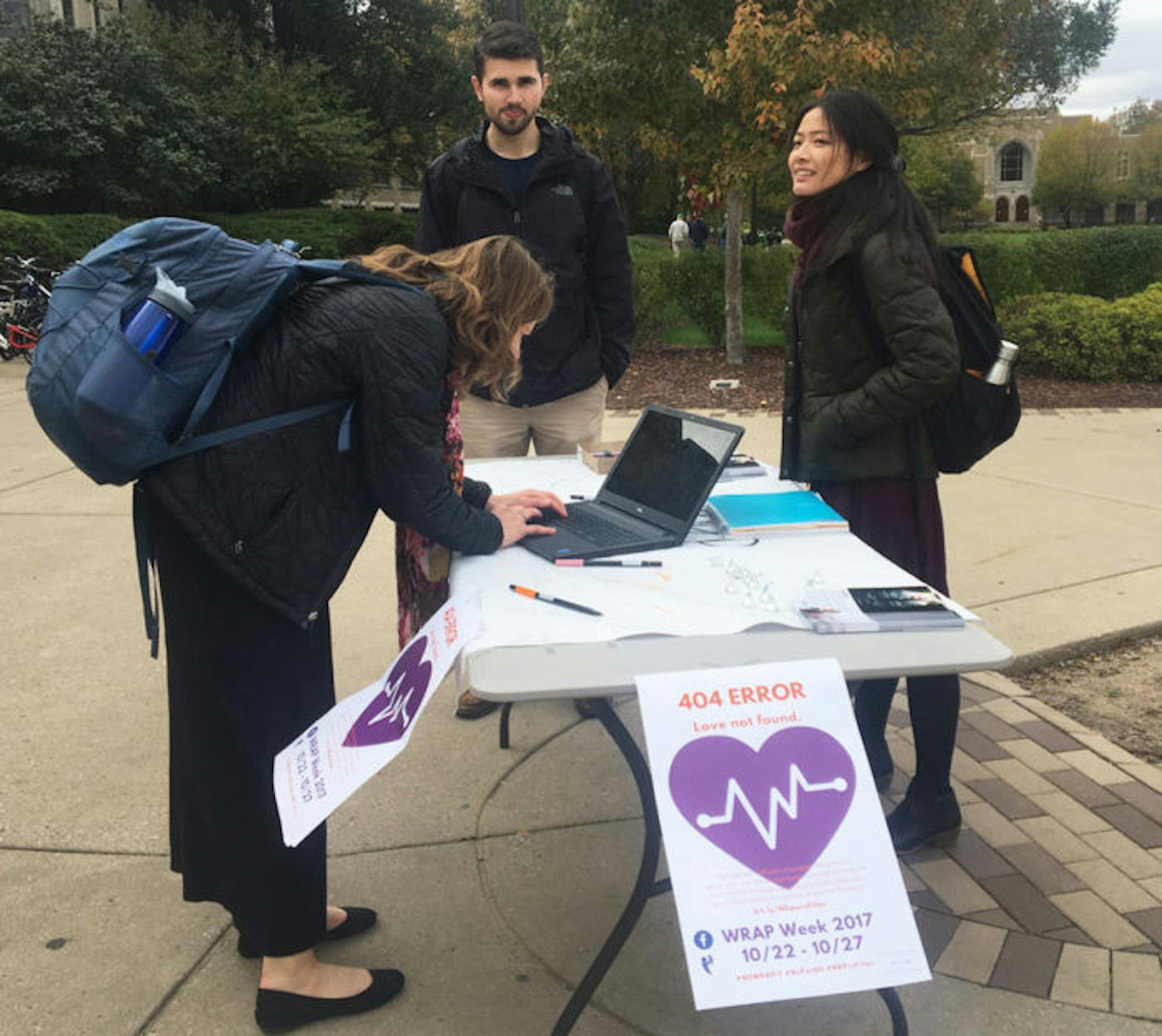The Foundation for Individual Rights in Education (FIRE), a nonprofit group that works to protect human rights on college campuses, condemned the call for Notre Dame to implement a pornography filter on its WiFi, spearheaded by the group Students for Child Oriented Policy (SCOP), in a statement published Oct. 26.
The nonprofit wrote that a pornography filter would violate students’ First Amendment rights, citing the United States Court of Appeals for the Seventh Circuit case American Bookseller’s Association v. Hudnut, which upheld the legality of pornography under the belief that “‘the government must leave to the people the evaluation of ideas.’”
Officially, Notre Dame’s “Responsible Use of Information Technology” policy forbids using campus WiFi to access pornography, except for pre-approved or academic purposes.
While FIRE agreed that Notre Dame, as a private institution, reserves the right to enforce its “Responsible Use” policy, the nonprofit drew attention to the University’s Standards of Conduct, which states “students and student organizations are free to examine and to discuss all questions of interest to them and to express opinions publicly and privately.”
FIRE program associate for the Individual Rights Defense Program and social media manager Ryne Weiss, who authored the statement, said implementing a pornography filter would prevent Notre Dame’s community from engaging with a full range of ideas.
“Free speech is meant to protect specifically the ideas that are controversial or offensive,” he said. “Ideas that are popular or in line with community values — those are the things that don’t need protection because people already agree upon them.”
This is not the first time FIRE has crossed paths with SCOP.
In 2014, the student group — already the subject of controversy for its anti-same-sex marriage views — was denied official recognition by the Club Coordination Council (CCC). The CCC argued SCOP was superfluous as it “closely mirrored” existing clubs. In a letter addressed to University President Fr. John Jenkins, FIRE denounced the CCC’s decision and called for administrative intervention, arguing that such denials of recognition were often pretexts for viewpoint discrimination. SCOP received recognition later that year.
Weiss said because SCOP has been on the receiving end of censorship it should be wary about calling for a pornography filter.
“SCOP, of all organizations, I think should know that when you put other principles above free speech, you are only opening up the possibility that you will be censored for your unpopular viewpoint,” he said.
In response to FIRE’s statement, senior James Martinson, president of SCOP, said the filter would not infringe on individual rights because the First Amendment does not cover vulgar content.
“It is agreed by the Supreme Court and appellate courts that obscenity is not protected by the First Amendment,” he said.
He also noted that as a private university, Notre Dame reserves the right to regulate technology use at its discretion.
“Notre Dame absolutely has the ability to respond in any way they see fit that would be in line with its mission as an academic university, as an academic institution that’s interested in protecting its students,” he said.
Michael Griffin, senior vice president of Holy Cross College, said Holy Cross currently uses a web filter to block access to pornographic content and pirated media. The filter was originally implemented to facilitate WiFi use, he said.
“Back about 15 years ago, when they put it in, one of the reasons was actually the College did not have a lot of bandwidth,” he said.
When Holy Cross upgraded its WiFi the filter was kept for moral reasons, Griffin said.
“We sort of took that bandwidth principle and on a higher level we felt like it … would help preserve our moral bandwidth,” he said.
Griffin said the filter detects and blocks restricted content automatically.
“It does work really well, we rarely have issues where a legitimate site is blocked,” he said.
John Gohsman, vice president for information technology and chief information officer at Notre Dame, said adding a pornography filter would be neither technologically difficult nor costly as the University already blocks websites on a large scale to protect against system attacks and break-ins. However, he said the University has little incentive to implement a filter because it would be easy to circumvent.
“We don’t necessarily believe from a technical standpoint it would be an effective approach,” he said.
Paul Browne, Notre Dame’s vice president for public affairs and communications, said the University presently has no plans to implement a filter.
“It’s hard to argue with the motives of this group in wanting to censor,” he said. “But I would hope and expect that the standards are such at the University that the people within our WiFi capabilities would be self-censors.”
He added that he does not believe it is the University’s place to monitor students’ media use.
“God’s given us the choice of whether we’re going to be sinners or not, you know?” he said.
Editor’s note: A previous version of this article incorrectly stated the court where American Bookseller’s Association v. Hudnut was heard. A panel of judges for the United States Court of Appeals for the Seventh Circuit heard oral arguments in the case on June 14, 1985.
Nonprofit condemns SCOP's call for porn filter
Observer File Photo
Notre Dame students gather at a table during Students for Child-Oriented Policy’s WRAP Week last year. This year, in the wake of WRAP Week, there have been calls for the University to implement a pornography filter on it’s WiFi. This proposal has been met with controversy.









